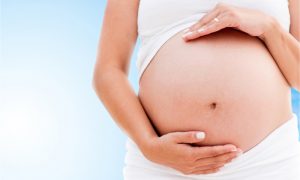 Non-invasive fetal RhD genotyping could be introduced in Australia to identify which RhD negative women are carrying RhD positive babies and therefore require antenatal anti-D prophylaxis therapy.
Non-invasive fetal RhD genotyping could be introduced in Australia to identify which RhD negative women are carrying RhD positive babies and therefore require antenatal anti-D prophylaxis therapy.
According to a recent cost-effectiveness analysis, the cost of implementing such a targeted anti-D program would be largely offset by lower use of valuable anti-D products and related resources.
The study calculated that with fetal RhD testing 13,938 RhD negative women could avoid anti-D prophylaxis each year at a cost savings of $2.1 million. The estimated total cost for fetal testing was $2.2 million.
They concluded RhD genotyping was ‘an economically sound option for Australia’.
Associate Professor Catherine Hyland, from the Australian Red Cross Blood Service’s research and development team in Brisbane, told the limbic it was a challenge to maintain anti-D supplies under the current universal prophylaxis program.
“There are only approximately 150 to 200 donors who currently contribute to the anti-D program. Anti-D is not found naturally in blood donors under normal circumstances. In that sense it is very rare. The gift these donors provide for RhD negative pregnant women is invaluable.”
Non-invasive cell-free fetal RhD genotyping using maternal plasma has been shown to be highly accurate therefore providing the opportunity to safely restrict anti-D prophylaxis to women at risk of haemolytic disease of the fetus and newborn.
National screening programs for all RhD negative pregnant women to guide anti-D prophylaxis already exist in Denmark, the Netherlands and Finland while smaller programs are underway in England and Sweden.
Associate Professor Hyland said she was not aware of any unexpected issues with implementation in these countries.
However the countries with national screening programs were smaller in size or in population to Australia perhaps making the logistics of delivering the program simpler.
“One barrier for introducing a screening program in Australia is the size of the country, because the samples have a limited storage time, and require refrigerated transport,” she said.
“Our findings from the Blood Service have been submitted for further analysis and consultation with external stakeholders.”
Fetal RhD genotyping is already available in Australia on request from attending obstetricians.